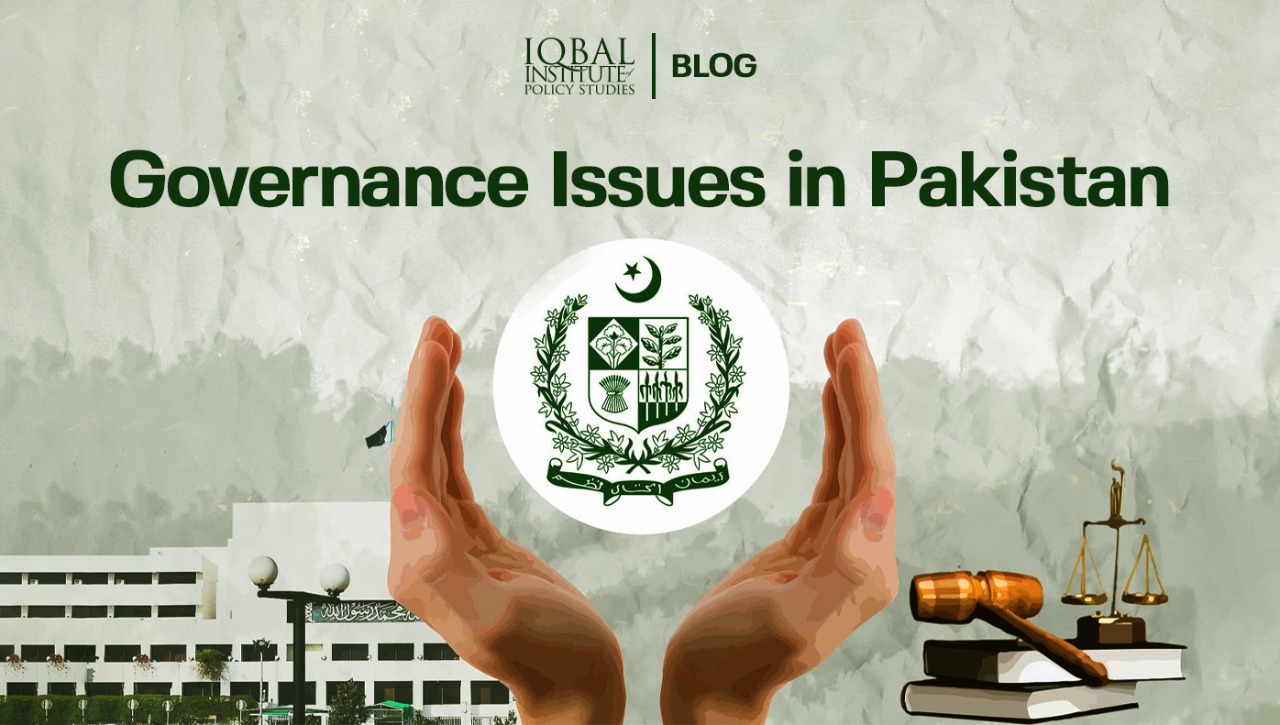
Introduction
The blog explores the issues of governance in Pakistan. Governance is defined as the way authority is exerted in the management of a country’s economic and social resources for development. Pakistan has faced various obstacles since its birth in 1947, including law and order, limited access to the court system, democratic instability, corruption, and many others. These issues develop governance difficulties that have hampered the country’s ability to develop smoothly and sustainably.
Governance Challenges in Pakistan
Good governance, according to a number of politicians, planners, and economists, is critical for long-term progress. The most fundamental causes of poor governance in Pakistan will be investigated in this blog. In Pakistan, there are several roadblocks to good administration, but some of them must be addressed immediately. Issues of governance should be resolved, and obstacles should be met in order to advance the nation’s cause.
Democratic Instability
Pakistan governance issues start with the democratic instability in the country. Democracy is widely regarded as the most ideal form of government. Democracy and effective governance are interrelated. Pakistan has been plagued by political unrest since independence, resulting in governance challenges. Good administration has become a utopian dream for the country due to political upheaval and democratic instability. From 1988 to 2017, Pakistan’s good governance was harmed by frequent government transitions. The military dictator’s repeated takeovers in Pakistan aggravated the country’s governance difficulties (Mezzera, 2009).
Corruption and Lack of Accountability
Good governance is built on the foundation of accountability. However, it is uncommon in Pakistani political culture. Good government necessitates accountability. There has been no genuine effort in Pakistan to ensure accountability and transparency. In a practical sense, the lack of accountability has aided corruption in the country. Controlling corruption and abuses of power and privileges requires accountability. Poor governance has resulted from the country’s crippled accountability system. Pakistan was placed 116th out of 176 nations on the Global Corruption Perception Index due to pervasive corruption (2016) (Imran, 2018).
Outdated Induction System
Recruitment is critical to the system’s operation because the entire system is dependent on the recruitment of qualified individuals. The outdated induction system, which has been in place for decades as a matter of status quo policy, is one of Pakistan’s key governance concerns. According to the job’s terms of reference, both the Federal Public Service Commission and the Provincial Service Commission must revisit the selection criteria. These organizations are enlisting misfits to fill critical positions in the country. The induction system should be purely based on merit.
Institutional confrontation
Throughout Pakistan’s history, there have been numerous clashes between the various institutions. When institutions exceed their constitutional powers and functions, this occurs. The parliament, judiciary, and military are regarded as the country’s cornerstones. The absence of harmonization and checks and balances invariably results in a battle between institutions. The judiciary has a critical role in limiting the institutions that fall under its constitutional authority. Unfortunately, the court has failed to perform its proper function, and as a result, the struggle for dominance among the state’s institutions has produced problems for effective administration (Akber, 2020).
The Way Forward
Pakistan isn’t the only country plagued by governance challenges. Other countries are also facing comparable issues and Pakistan could benefit from their experience in developing an effective governance system. It is necessary to strengthen governmental institutions rather than individuals, but it is also necessary to empower individuals to participate in the development of sustainability. Decentralization of authority from feudal lords and elite politicians to local authorities is also a key need of the time for good government. To attract and retain the best employees, the proper skills must be developed. Workers’ salaries must be adequate, and legislation must be enacted to improve accountability and transparency, as well as to punish corrupt individuals harshly. Integrated policymaking and execution is critical since it has remained a key flaw.
Conclusion
In a nutshell, Pakistan has been dealing with a governance crisis since its birth. It has been found that democratic instability, corruption, lack of accountability, and institutional defects are producing governance problems in our country. Pakistan must reconsider its government’s position and capabilities in governing the current law and order, demographic, financial, and accountability difficulties, all of which have a direct impact on Pakistan’s governance practices. Pakistan’s ability to deal with future crises and problems hinges on the quality, adaptability, and efficacy of its public governance system.
Bibliography
Akber, N. (2020). Challenges in Implementation of Good Governance in Pakistan. Content Generate. Retrieved from https://contentgenerate.com/good-governance-challenges-in-pakistan-corruption-terror-disctatorship/
Imran, M. (2018). Good Governance in Pakistan: Challenges and Recommendations. International Journal of Law, Government and Communication. Retrieved from GoodGovernanceinPakistanChallengesandRecommendationsIJLGC-2018-10-09-01byMImran.pdf
Mezzera, M. (2009). Challenges of Pakistan’s Governance System. Norwegian Peace Building Centre. Retrieved from https://www.clingendael.org/sites/default/files/2016-02/20091019_cru_artikel_mezzera.pdf
Research Questions
What are the obstacles in the way of good governance in Pakistan?
What are the recommendations to deal with governance challenges?[/fancy_box][fancy_box box_style=”color_box_basic” icon_family=”fontawesome” image_url=”8182″ box_color_opacity=”1″ box_alignment=”left” border_radius=”default” image_loading=”default” icon_fontawesome=”fa fa-envelope-open” icon_size=”60″]
Key Takeaways
Governance is defined as the way authority is exerted in the management of a country’s economic and social resources for development.
Pakistan has faced various obstacles since its founding in 1947, including law and order, limited access to the court system, democratic instability, corruption, and many others.
From 1988 to 2017, Pakistan’s good governance was harmed by frequent government transitions. The military dictator’s repeated takeovers in Pakistan aggravated the country’s governance difficulties.
Pakistan has been dealing with a governance crisis since its birth. It has been found that democratic instability, corruption, lack of accountability, and institutional defects are producing governance problems in our country.
Decentralization of authority from feudal lords and elite politicians to local authorities is a key need of the time for good government.
Workers’ salaries must be adequate, and legislation must be enacted to improve accountability and transparency, as well as to punish corrupt individuals harshly. Integrated policymaking and execution is critical since it has remained a key flaw.[/fancy_box]

Leave a Reply